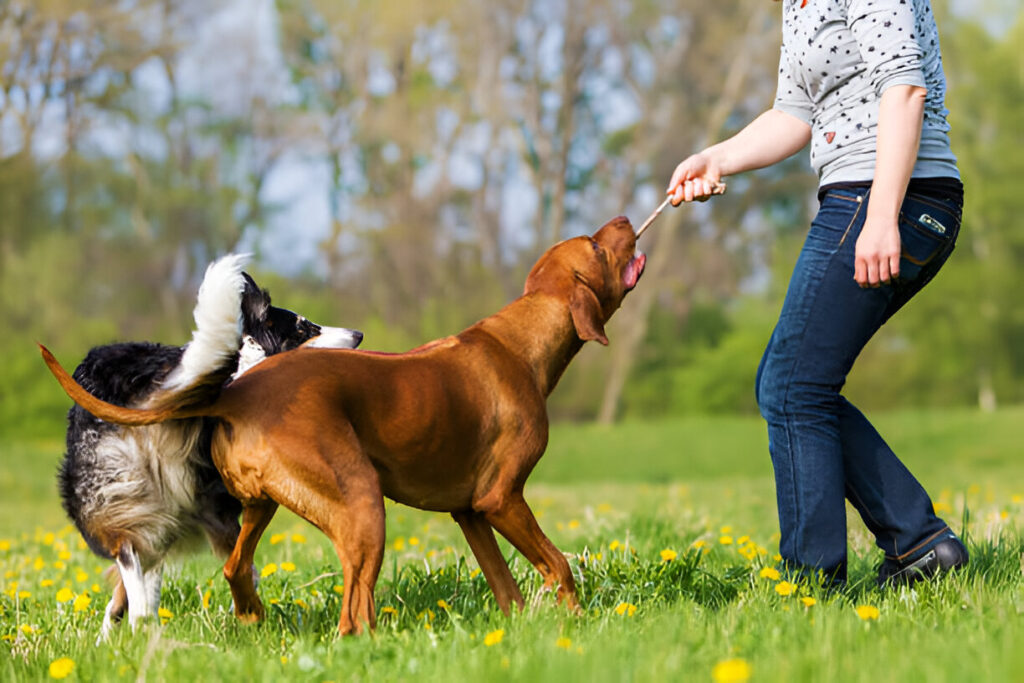
A comprehensive guide for pet parents dealing with canine aggression, featuring expert insights and proven rehabilitation techniques
Introduction
Dealing with an aggressive dog can be one of the most challenging experiences for pet owners. Whether you’ve recently adopted a dog showing signs of aggression or your longtime companion has developed concerning behaviors, this comprehensive guide will walk you through evidence-based training methods, expert recommendations, and real-world success stories.
Understanding Canine Aggression
Before diving into training methods, it’s crucial to understand that aggression in dogs isn’t a one-size-fits-all issue. According to Dr. Sarah Wilson, DVM, behavioral specialist at the American Veterinary Medical Association, “Aggression in dogs is often a symptom of underlying issues rather than the primary problem itself.”
Common Types of Aggression:
- Fear-based aggression
- Triggered by perceived threats
- Often accompanied by submissive body language
- May occur when the dog feels cornered
- Resource guarding
- Protection of food, toys, or territory
- Can develop at any age
- Often seen in dogs with insecure backgrounds
- Territorial aggression
- Defensive behavior of space
- Common in certain breeds
- May increase with maturity
- Redirected aggression
- Occurs when a dog cannot reach the source of frustration
- Often sudden and unexpected
- Can be particularly dangerous
Evidence-Based Training Methods
1. Counter-Conditioning
Counter-conditioning has shown remarkable success rates according to studies published in the Journal of Veterinary Behavior. This technique involves:
- Changing the dog’s emotional response to triggers
- Pairing positive experiences with previously negative stimuli
- Gradual exposure to triggers at a comfortable distance
2. Positive Reinforcement Training
The Association of Professional Dog Trainers strongly endorses positive reinforcement as the primary training method. Benefits include:
- Strengthening the human-animal bond
- Creating lasting behavioral changes
- Reducing stress during training
- Building confidence in fearful dogs
3. Systematic Desensitization
This scientific approach involves:
Step 1: Identify triggers
Step 2: Create a hierarchy of triggers from least to most challenging
Step 3: Begin with the least challenging trigger
Step 4: Gradually progress as the dog shows comfort4. Management and Environmental Control
Environmental management is crucial for successful rehabilitation:
- Creating safe spaces for the dog
- Controlling exposure to triggers
- Using appropriate containment methods
- Establishing consistent routines
Professional Support and Resources
Working with qualified professionals is often essential. Look for certifications from:
- Certification Council for Professional Dog Trainers
- International Association of Animal Behavior Consultants
- Pet Professional Guild
Real-World Success Stories
“After six months of dedicated training using positive reinforcement methods, my German Shepherd’s reactivity towards other dogs decreased by 80%. The key was consistency and professional guidance.” – Mike Thompson, Forum member at GermanShepherd.com
Training Equipment and Tools
Recommended Tools:
- Proper Harness Selection
- Front-clip harnesses for better control
- Properly fitted equipment
- Avoid aversive tools
- Long Training Leashes
- Various lengths for different training scenarios
- High-quality materials
- Proper handling techniques
- Positive Reinforcement Aids
- High-value treats
- Clickers for marker training
- Interactive toys
Creating a Training Plan
A structured approach is essential:
- Assessment Phase
- Document triggers
- Identify patterns
- Establish baseline behaviors
- Goal Setting
- Set realistic milestones
- Create measurable objectives
- Plan for setbacks
- Implementation
- Daily training sessions
- Consistent approach
- Progress tracking
Safety Considerations
Always prioritize safety:
- Proper management tools
- Muzzle training when necessary
- Understanding body language
- Having an emergency plan
Expert Tips and Recommendations
Dr. Patricia McConnell, renowned animal behaviorist, suggests:
“The key to addressing aggressive behavior is understanding that every dog has a unique threshold. Working below that threshold is crucial for success.”
Frequently Asked Questions
1. How long does it typically take to see improvement in aggressive behavior?
Every dog is different, but most owners report seeing initial improvements within 4-6 weeks of consistent training. However, complete behavior modification can take 6 months to a year or longer, depending on the severity and root cause of the aggression. Consistency and patience are key factors in success.
2. Is medication ever necessary for aggressive dogs?
In some cases, veterinary behaviorists may recommend medication as part of a comprehensive treatment plan. According to Dr. Karen Overall from the University of Pennsylvania School of Veterinary Medicine, approximately 30% of dogs with severe aggression benefit from medication combined with behavior modification training.
3. Can aggressive dogs ever be trusted around children?
While rehabilitation is possible, safety should always be the priority. Even after successful training, supervision is essential. Many reformed dogs live happily with children, but management strategies should always be in place. Consult with a professional to evaluate your specific situation.
4. What if my dog’s aggression suddenly worsens?
Sudden changes in behavior warrant immediate veterinary attention to rule out medical causes. Pain, thyroid issues, and other health problems can cause or exacerbate aggressive behavior. Document any changes in routine, diet, or environment that might have triggered the change.
5. Are certain breeds more difficult to train out of aggressive behaviors?
While breed can influence certain behavioral tendencies, individual personality and history play more significant roles in training success. Studies from the American Temperament Test Society show that breed is less important than factors like early socialization, training consistency, and owner commitment.
Community Support and Resources
Join these supportive communities for ongoing guidance:
- r/reactivedogs
- r/dogtraining
- Local training clubs and behaviorist networks
Conclusion
Addressing aggressive behavior in dogs requires dedication, patience, and the right approach. By following evidence-based methods, working with qualified professionals, and maintaining consistency, many dogs can show significant improvement. Remember that each dog’s journey is unique, and success often comes from a combination of different approaches tailored to your specific situation.
